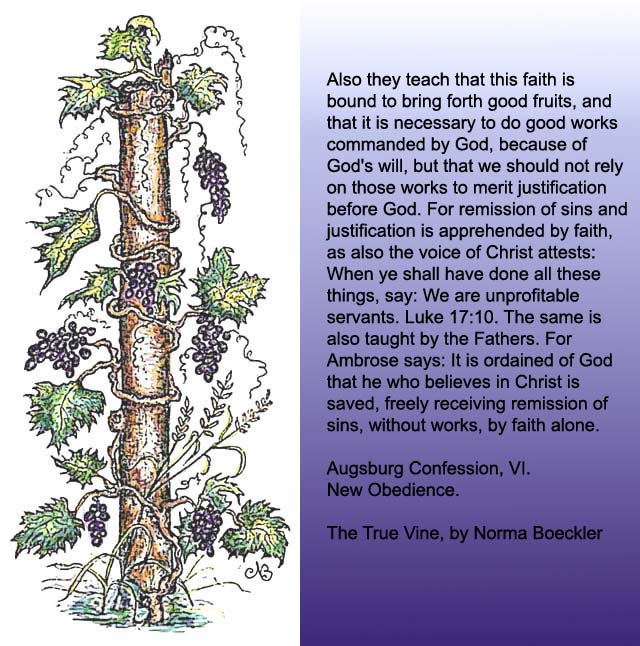 |
| A Pietist priest complained about cat graphics. Here is another one to fuel his self-righteous anger. |
I could write a longish essay or shortish book on this. For now I will summarize the differences.
Lutheran doctrine is not a brand, not a denomination. Lutheran doctrine is clearly defined in the Book of Concord as Biblical teaching directly from the Scriptures and supported by the Scriptures, with additional backing from the early Church Fathers. Luther is the key theologian because of his clear Biblical teaching and preaching about Justification by Faith Alone.
Pietism originated with Spener, who was influenced by Roman Catholic cells and Calvinism. Pietism was a deliberate blending of Lutheran doctrine and Calvinism, so it was post-Reformation and alien to the Lutheran Reformation. All American Protestant and Lutheran denominations came from Pietism, as part of Pietism's missionary emphasis. Spener is the key figure because of his organizing ability and prolific writing, with an emphasis on developing piety through the small group (cell, Bible study, conventical. prayer, care, share, koinonia group). Pietism is founded on doctrinal indifference and an emphasis on works.
The Christian Church is a gathering church, using the Means of Grace to plant and sustain faith in individuals. Worship is man receiving grace and forgiveness through the invisible Word of preaching and teaching, the visible Word of Holy Baptism and Holy Communion.
Pietism is a gathered church, where people must meet certain standards lest they be excluded. Sermons are about how evil the outside world is, especially those with some relationship to the group, but how holy and wonderful the group is, since they are so selective in their fellowship. Pietists have long faces, long beards, and short tempers, like their exemplars - the Pharisees. They are forever pounding the sins of others with the hammer of the Law.
Sincere Christian believers rejoice in the treasures of the Gospel, knowing that they can never exhaust the spiritual wisdom of the Scriptures or the best of the Reformation theologians.
Pietism glorifies its works and looks for material proof of its superiority. That may include large buildings, huge gatherings, balanced budgets, large endowments, spartan hair-shirt simplicity, or splendid robes, incense, copes, mitres, chasubles, berets, and crosiers. Titles are fraught with meaning, and everyone knows the implication of those titles.
The Christian Gospel teaches people that the Holy Spirit forgives sin through the Gospel Word daily, freely and fully. As Luther wrote, God forgives not just the trivial sins and the ones we think we can conquer, but also the great and terrible sins.
Pietism invents sins and elevates them to mortal sins, sins for shunning and excommunication, with the end result of trivializing actual sin. Therefore, people feel guilty for buying Girl Scout cookies or hosting a Cubs group, but they laugh away the criminal actions of their denominational leaders. Murder and child porn never happen among the Pure and the Perfect. Anyone who reports the truth has already "broken fellowship with us." Attitudes are also punished. As Northwestern Publishing House wrote me, "We will not publish Catholic, Lutheran, Protestant until you change your attitude about WELS." Previously, CLP was scheduled for printing by NPH, but my criticism of Church Growth wounded their tender feelings.
The true Christian Church is a gathering church, so the pastors and congregations emphasize the Means of Grace and trust in the efficacy of the Word. Therefore, they do not claw and rake members into their group, to control them and make them shun the rest of the evil world.
Pietists control the actions and attitudes of their clergy and members. Many of the rules are unwritten but well known. The right family can party like the Kennedy clan, steal money, and embarrass everyone with false doctrine, but they are shielded by automatic, daily absolution - due to their ties to the hierarchy. As Carl Mischke said about Paul Calvin Kelm, "He could join any denomination and he would be welcome."
Lutherans Extol the Word.
The church has the command to appoint ministers; to this we must subscribe wholeheartedly, for we know that God approves this ministry and is present in it. It is good to extol the ministry of the Word with every possible kind of praise in opposition to the fanatics who dream that the Holy Spirit does not come through the Word but because of their own preparations. (Apology XIII:9,11-13)
Pietists extol themselves.
 |
| ELDONA made this graphic and posted it on the Right Reverend Lord High Bishop's FB page. |










